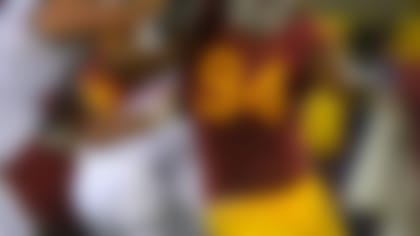The big plays and big hits by safeties Ed Reed, Troy Polamalu, Adrian Wilson and Bob Sanders, have brought the safety position back into the spotlight. For years, safety was considered an afterthought and teams didn't feel the need to use high first-round picks on the position. Some teams refused to use any first-round pick at all on a safety.
Conventional wisdom said that a brutish-but-coverage-liability-type strong safety could be found in later rounds, as could a free safety, typically a fleet, cerebral ball hawk. The lines of the two safety positions were clearly defined.
Draft series: Safeties
[ NFL.com's 10-part series looks at each position in the draft.
Safeties package
» Video: Mayock's top five
» Photos: Top prospects
Over the past few years, the lines have blurred. Strong and free safeties have become interchangeable, each having to possess solid cover skills, each having to be tough enough to launch into a 240-pound tailback five yards from the line of scrimmage. With offenses running more three-receiver sets and defensive coordinators trying to mask coverages, the interchangeable safety is becoming a must.
The safety that fits that mold in this year's draft class is Western Michigan's Louis Delmas.
Delmas was on the radar of most teams but he wasn't widely known until Senior Bowl practices. He always seemed to be involved, whether it was a run or pass play. He moved ahead of players like Missouri's William Moore and Oregon's Patrick Chung, two excellent safeties who weren't quite as versatile or around the ball as much as Delmas.
Considering he is a shade more than 200 pounds, Delmas has the body type of a free safety but he plays with the physicality of a strong safety. He is the prototype, whose only shortcoming is a concern about his durability because he plays so hard. As much as he meets the specs, he is still not projected as a first-round pick.
Delmas won't last long, though, as safety-needy teams like Jacksonville, Cleveland and New England wait at the top of the second round. Chung, Moore, Alabama's Rashad Johnson and possibly Troy's Sherrod Martin also could be second-round picks, but they could just as easily last into the fourth round.
This draft could be the first since 2005 that a safety isn't selected in the first round.











